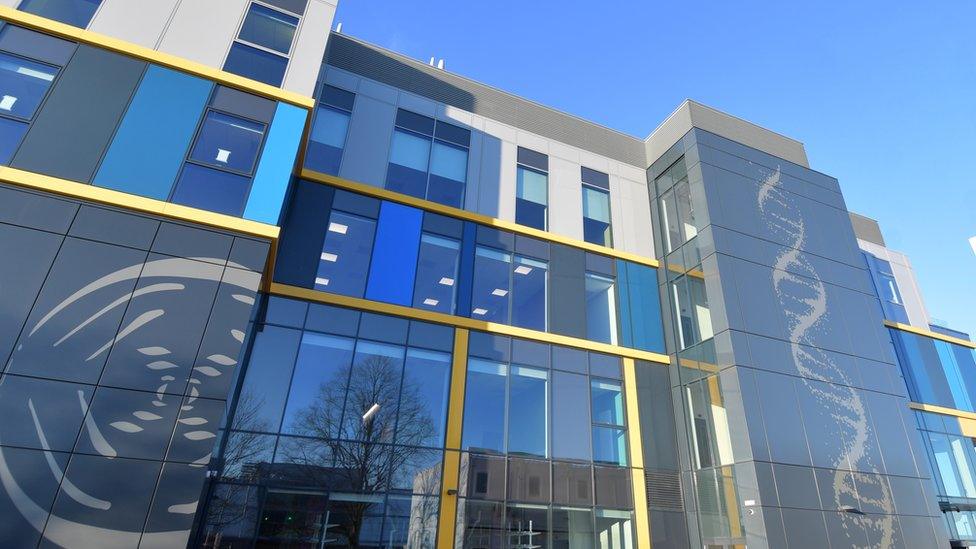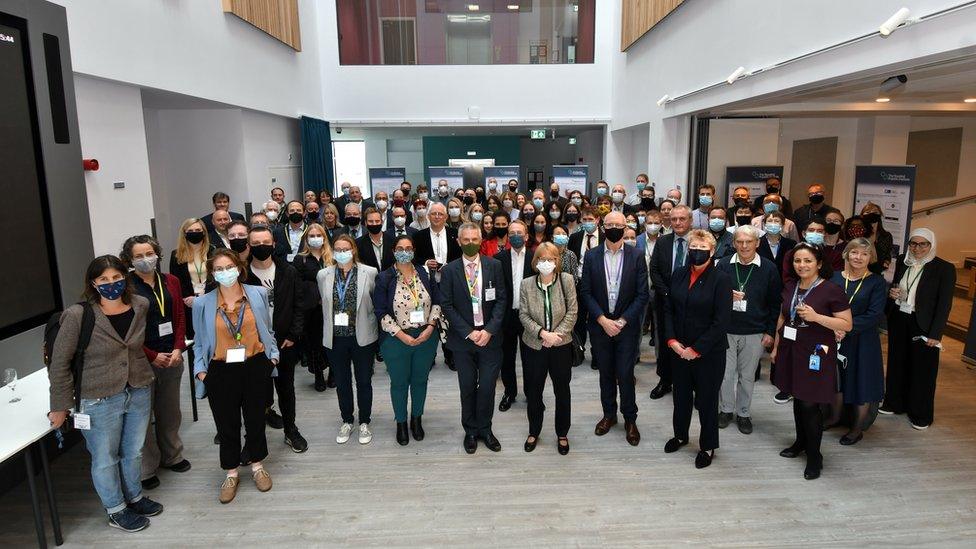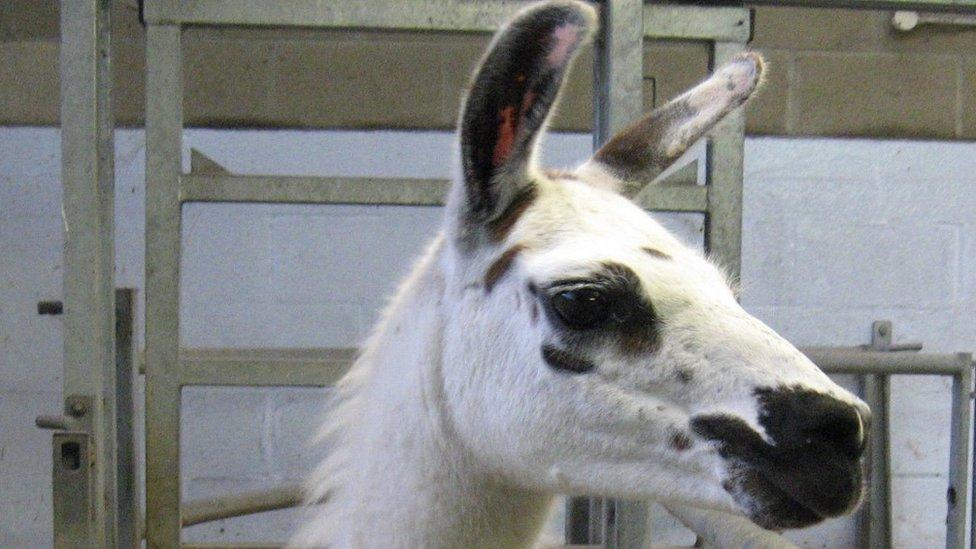New £43m Harwell life sciences complex opens
- Published

Prof James Naismith, the institute's director, said the new building is its "perfect home"
A new £43m base for a life sciences research institute has opened at the Harwell campus in Oxfordshire.
The Rosalind Franklin Institute was set up by 10 universities, the Science and Technology Facilities Council and science facility Diamond Light Source in 2018.
Its director said the work done at the complex will "provide major factor-of-ten leaps" in scientific understanding.
Prof James Naismith said the new building is its "perfect home".
The building was opened by Prof Dame Lynn Gladden, the chief executive of the Engineering and Physical Sciences Research Council (EPSRC), which funds the institute, and delegates from industry and academia, including Nobel Prize winner Richard Henderson.

Delegates from industry and academia attended the official opening
The new building, near Didcot, sits within the Rutherford Appleton Laboratory, which is home to the Diamond Light Source synchrotron, Isis Neutron Spallation source and the Central Laser Facility.
The institute's university partners include Birmingham, Cambridge, Edinburgh, Oxford, Leeds, Southampton and Manchester.
Prof Gladden said: "By connecting physical sciences and engineering to the life sciences, we have the ability to develop new innovations to enhance our understanding of life.
"The opening of the Rosalind Franklin Institute will help us to tackle health research challenges and enable the UK to make leaps in life sciences innovation which would otherwise be inaccessible."
The institute said Rosalind Franklin, external has been "mythologised as the victim of male prejudice" as the "unsung heroine" in DNA research with James Watson and Francis Crick.
But it said she also made "foundational contributions" to modern understandings of coal, graphite and viruses before her death aged 37 in 1958.

Follow BBC South on Facebook, external, Twitter, external, or Instagram, external. Send your story ideas to south.newsonline@bbc.co.uk, external.
Related topics
- Published22 September 2021

- Published13 July 2020
